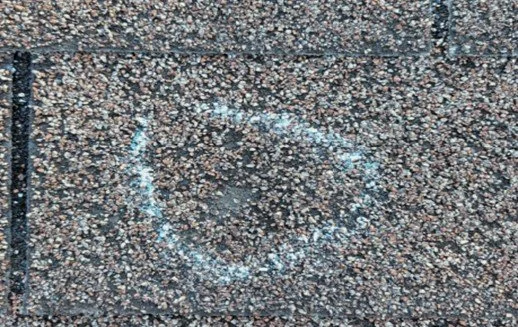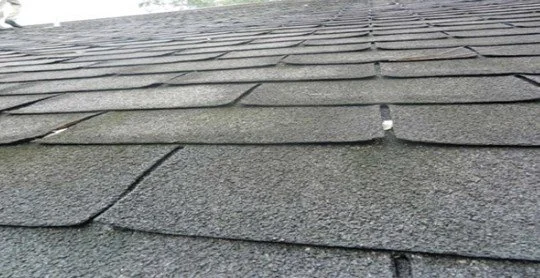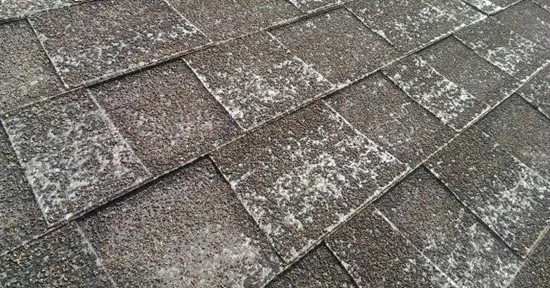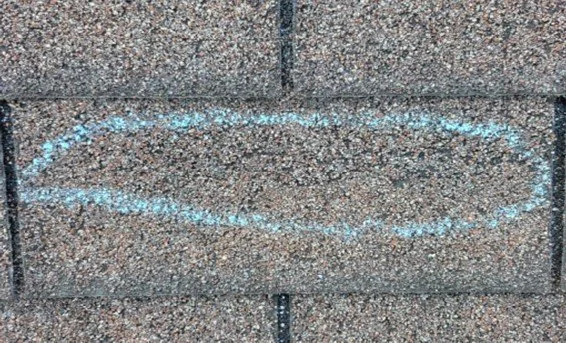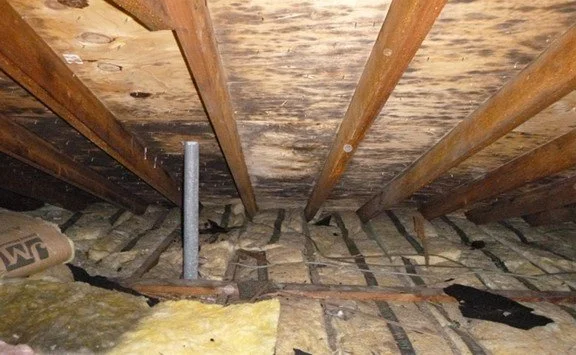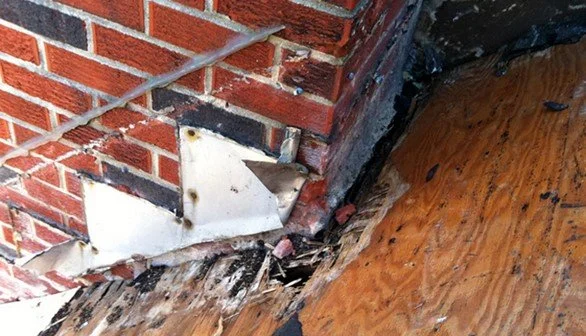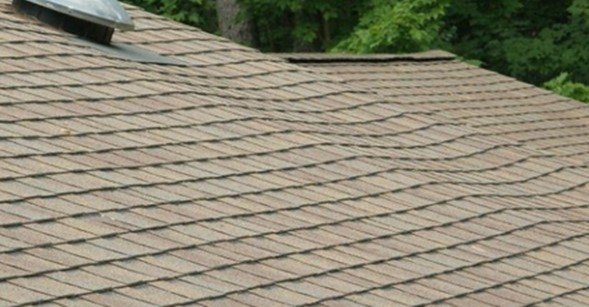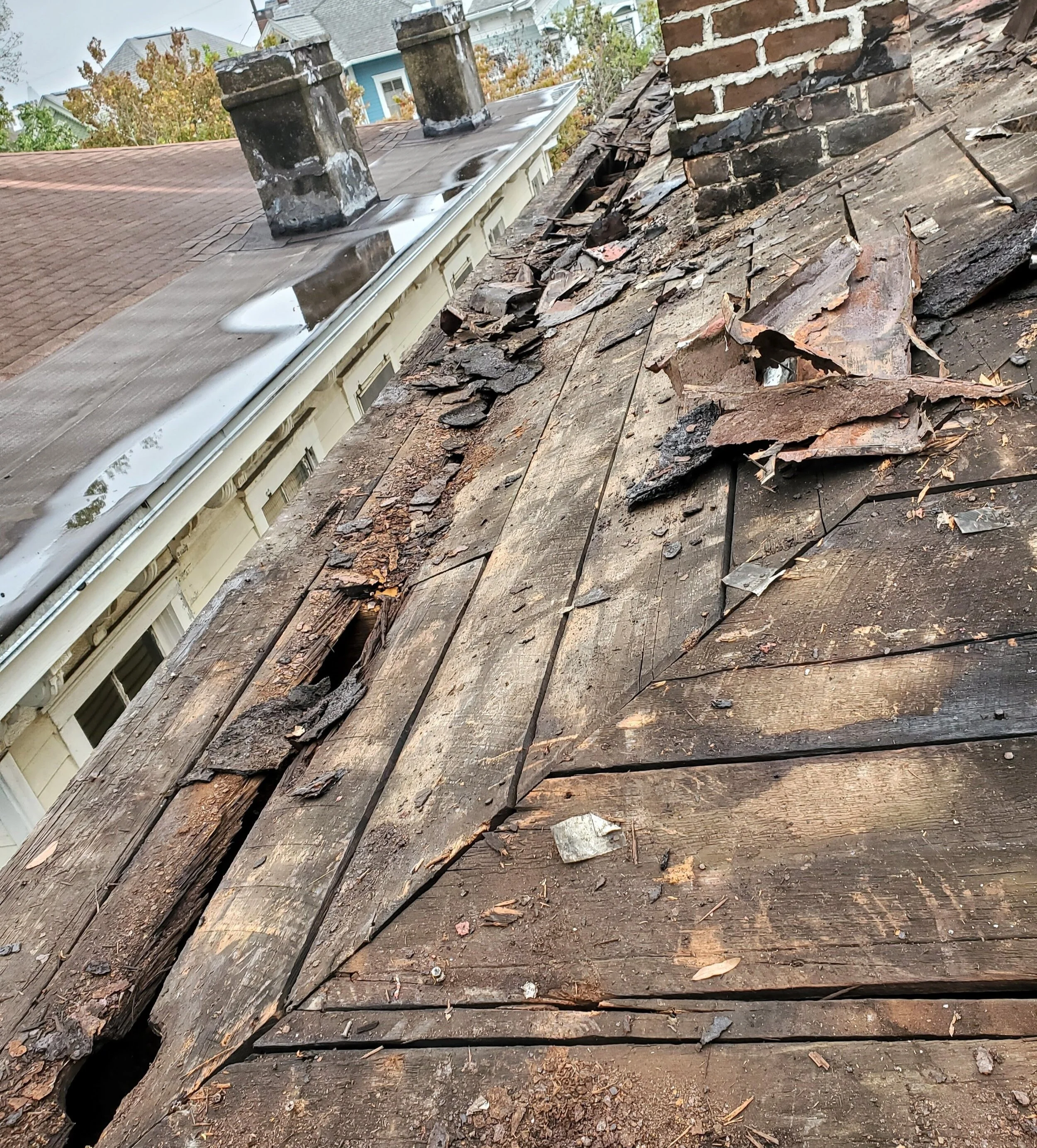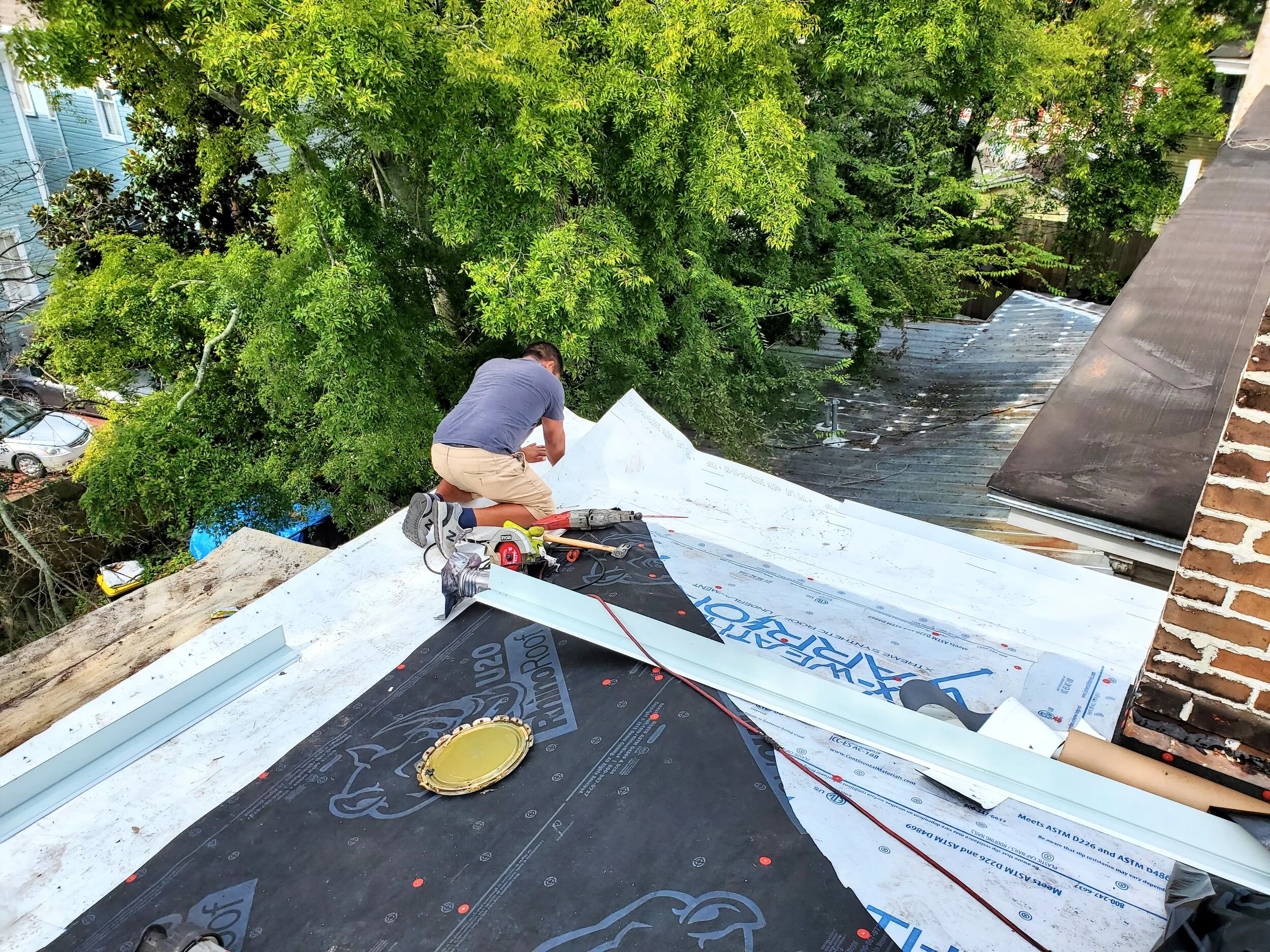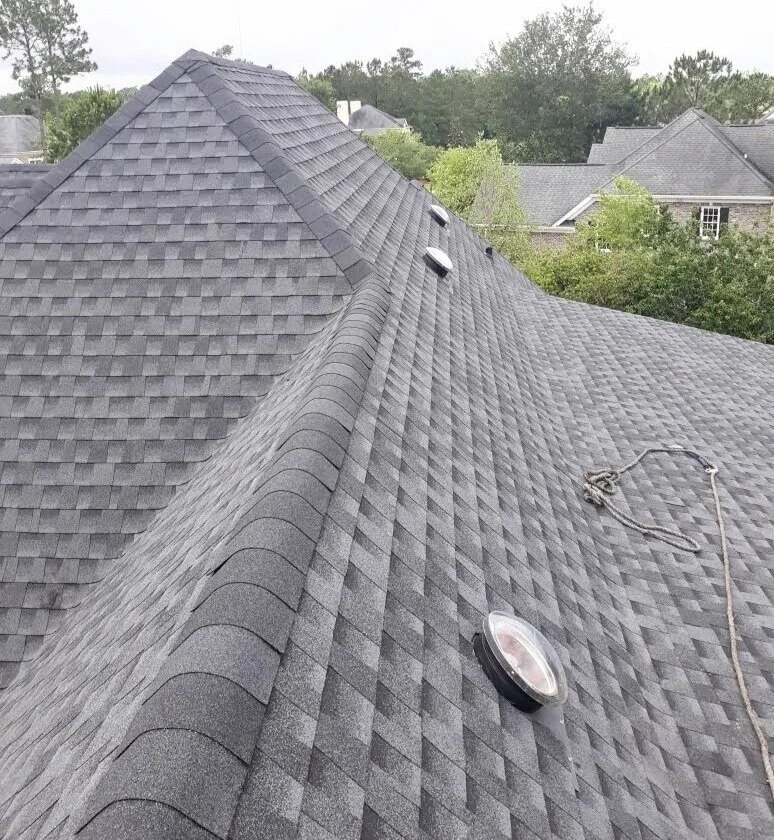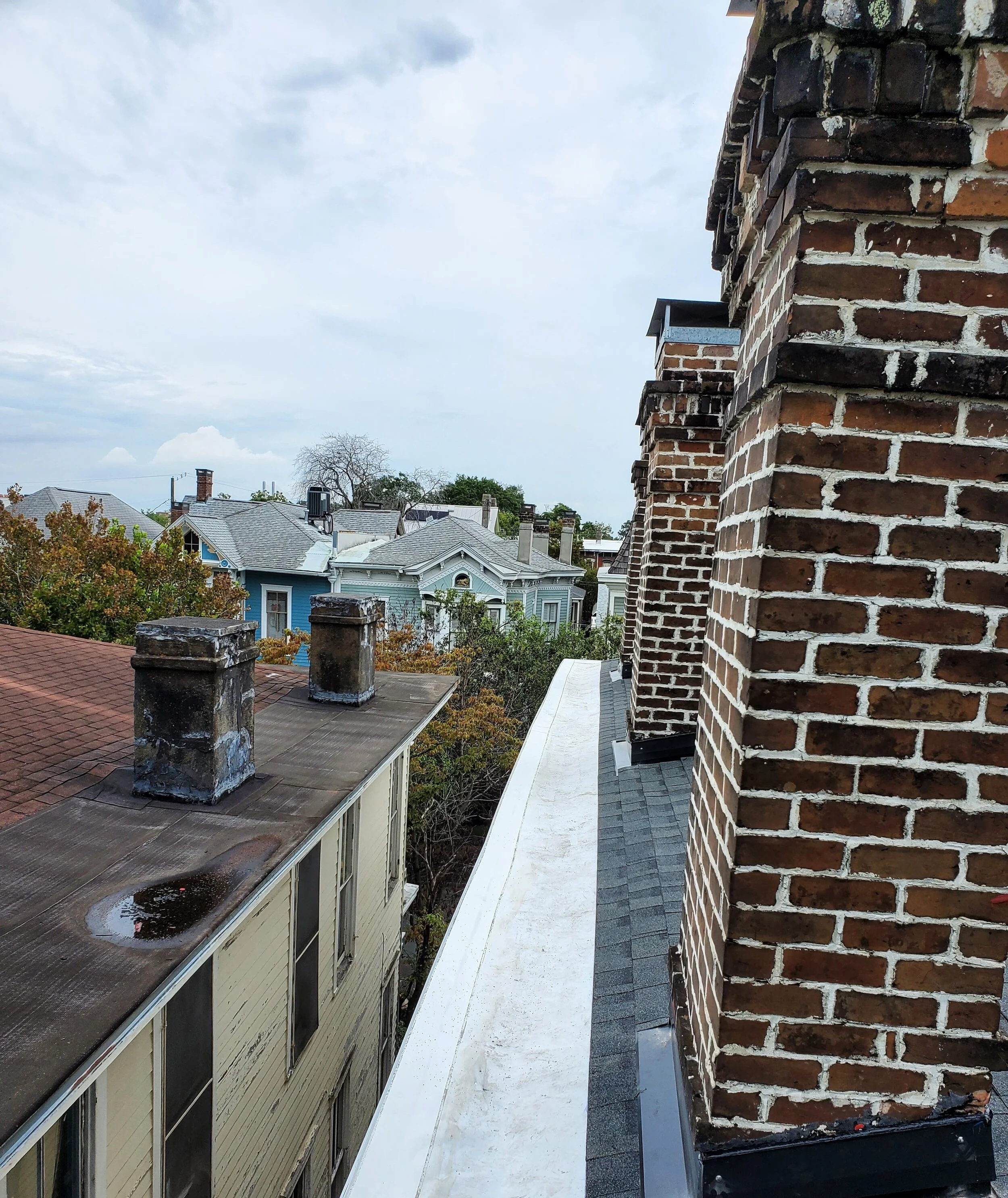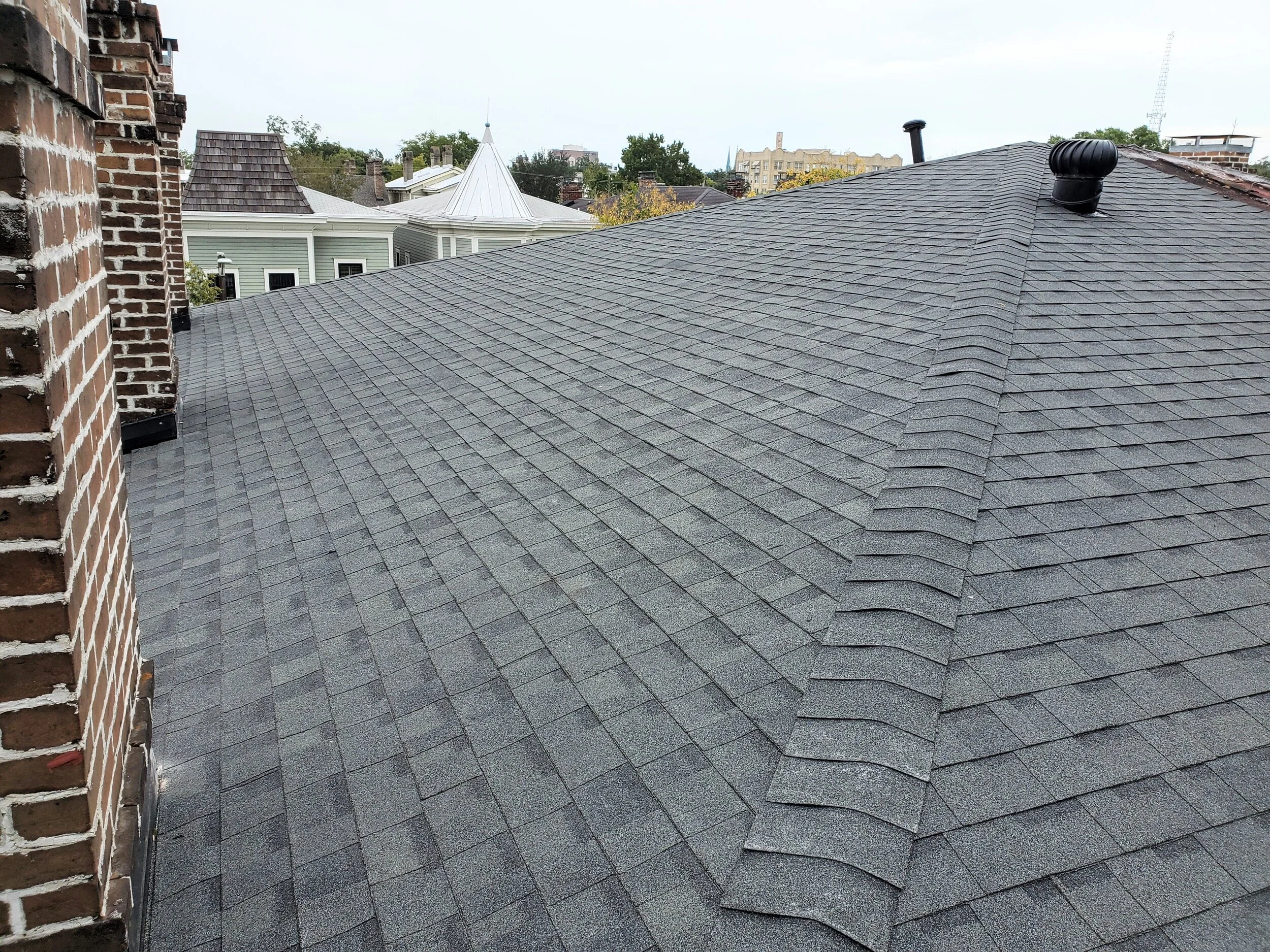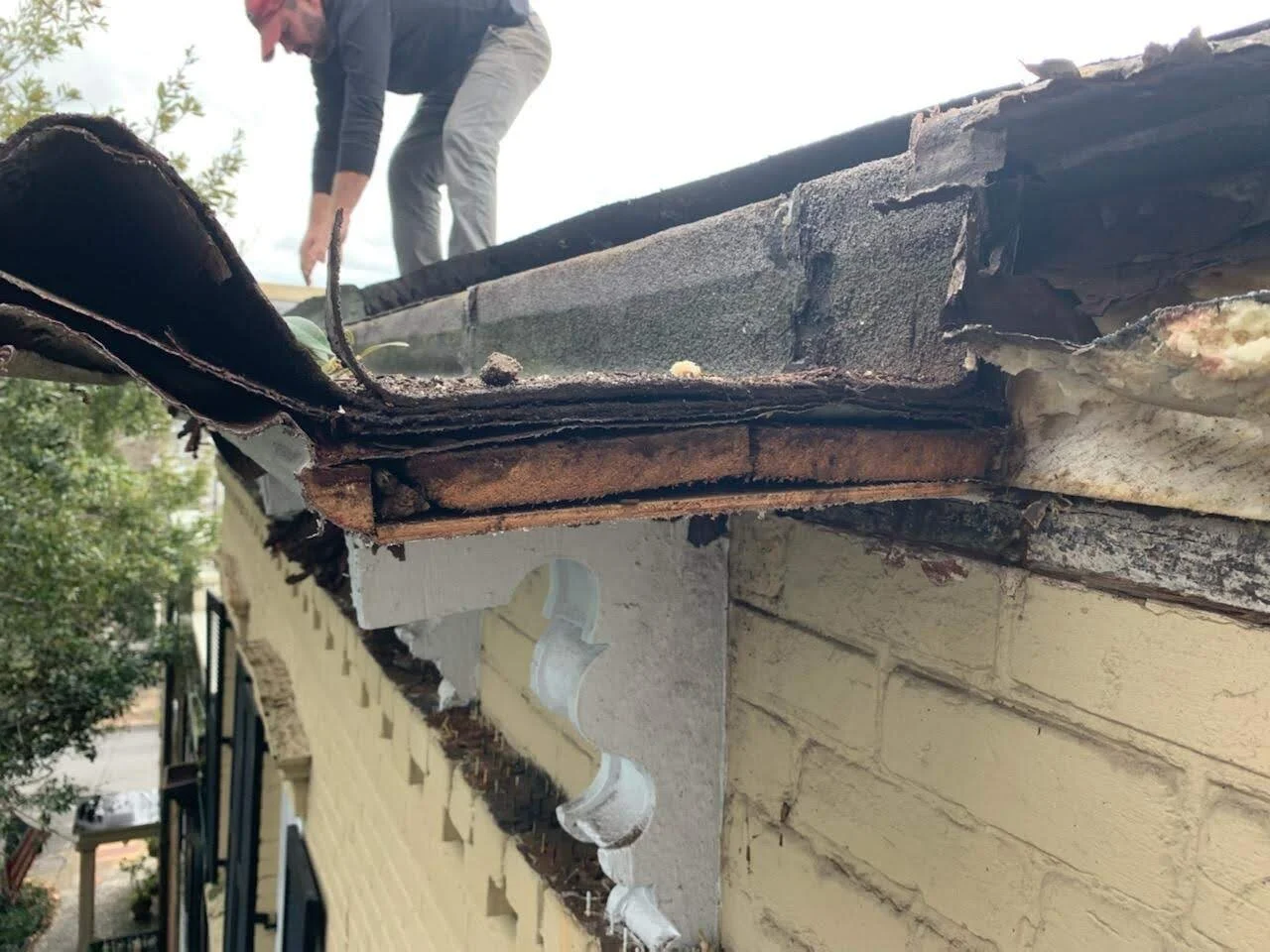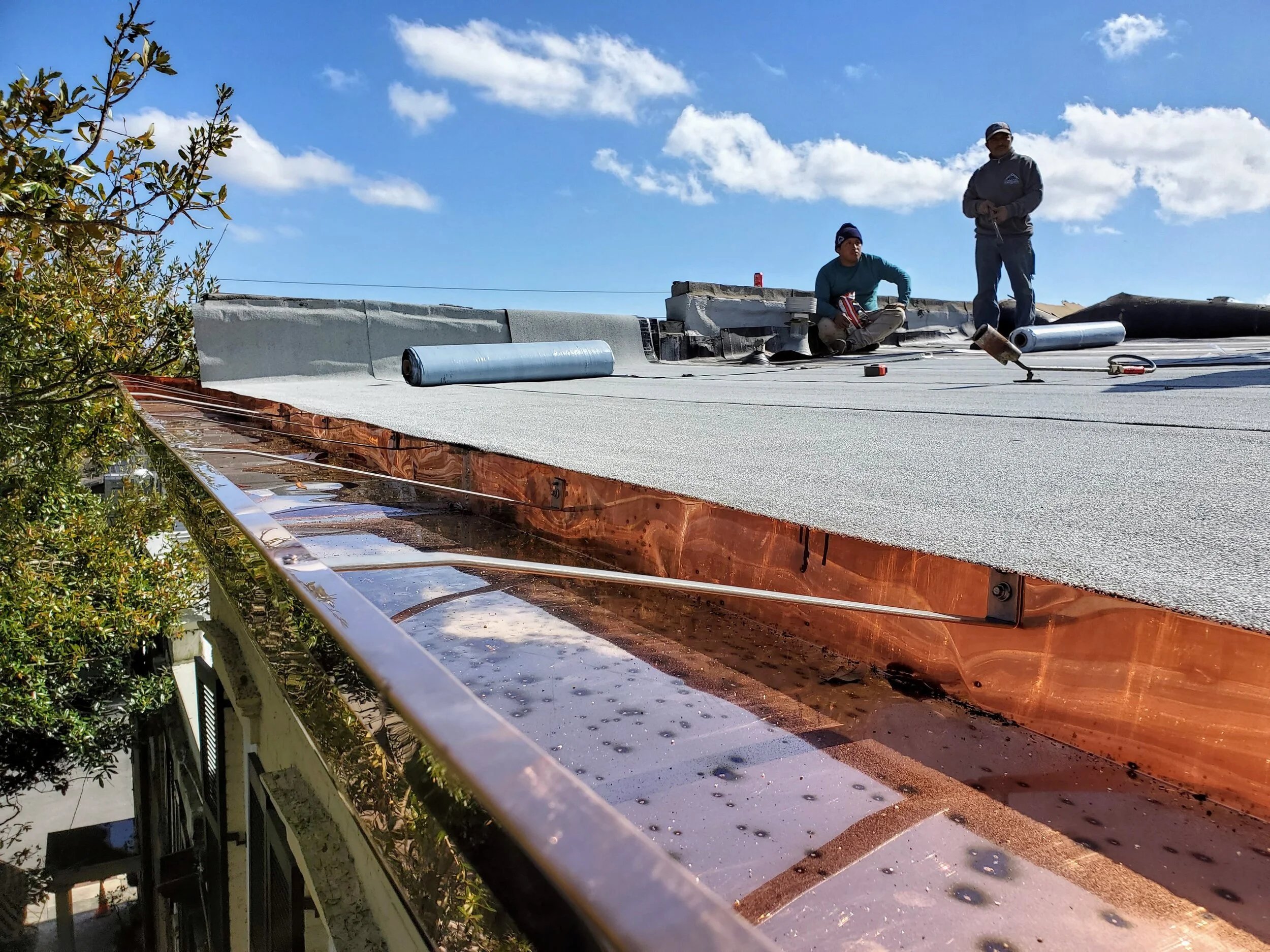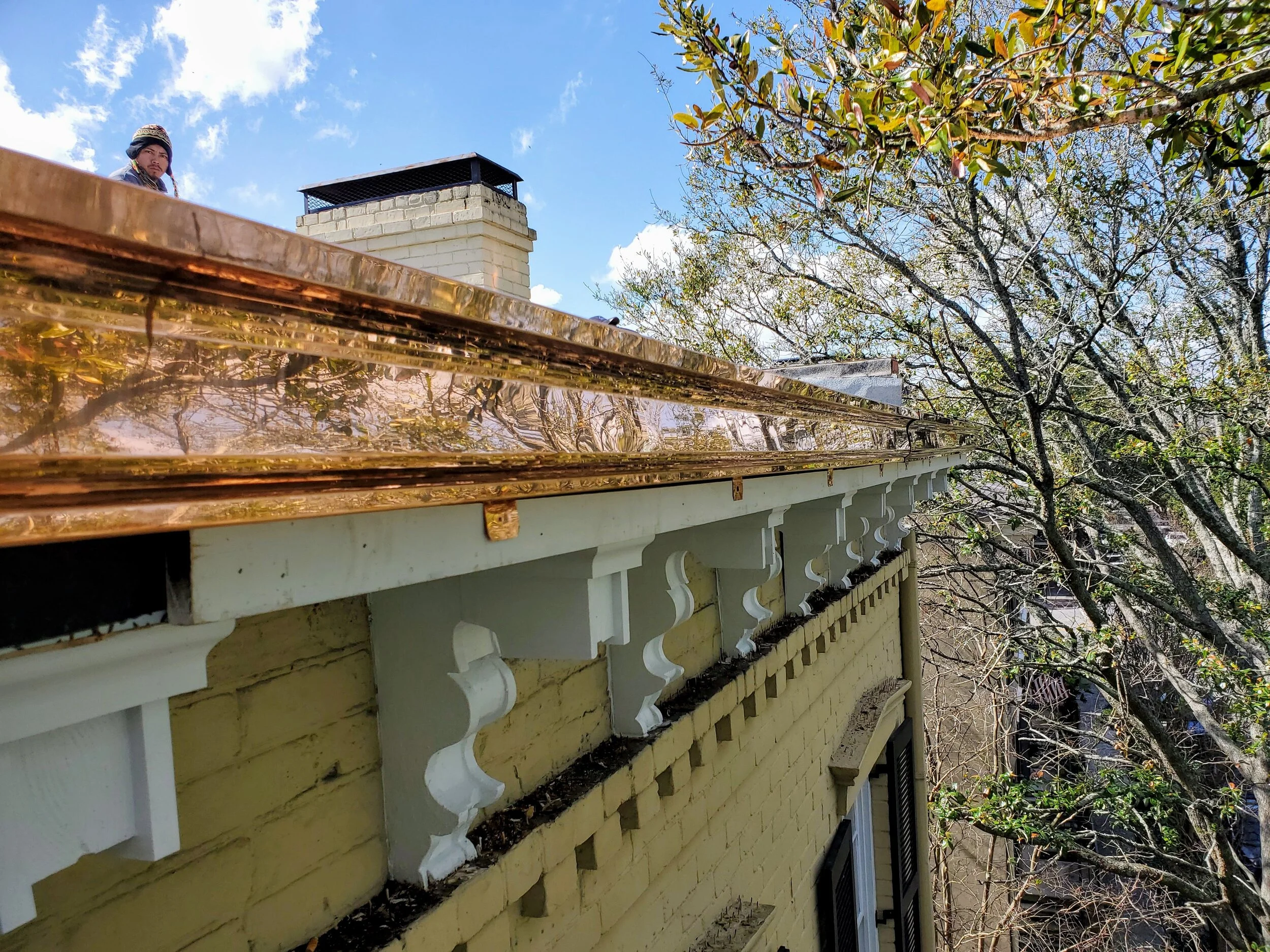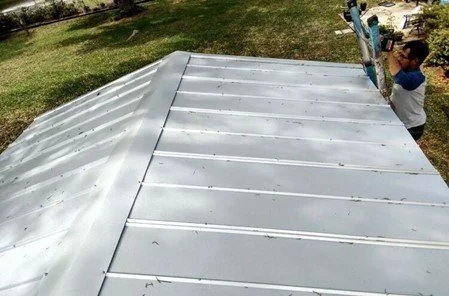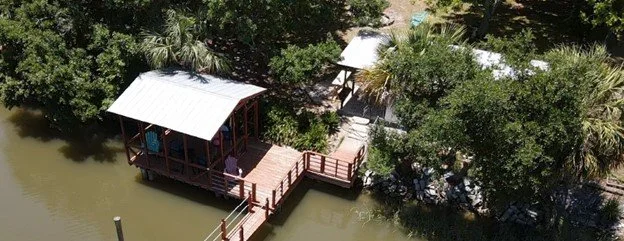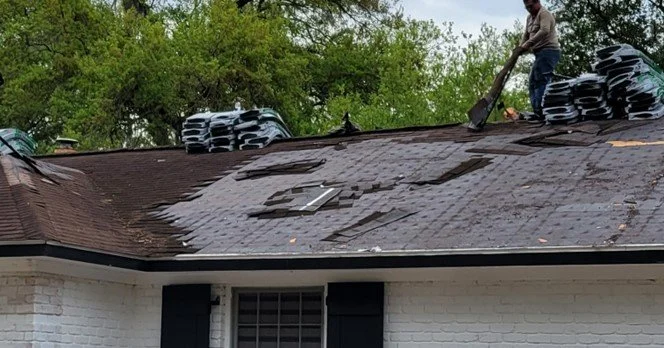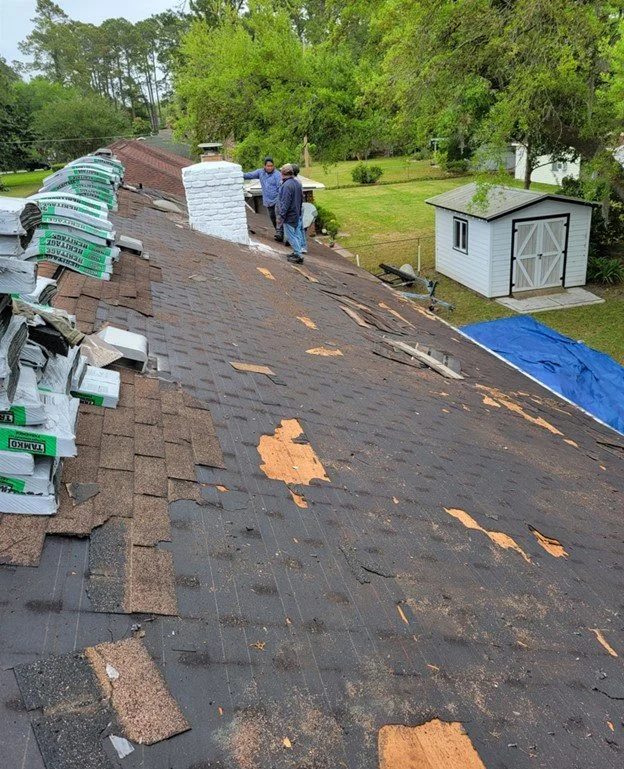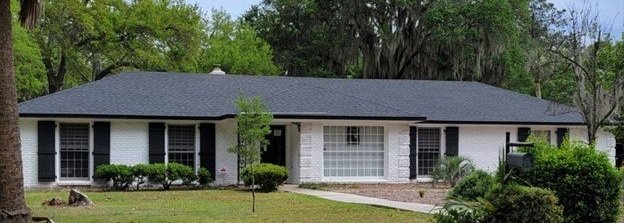ROOFING – Shingle, Metal, and TPO
Inspections, Repairs, and Replacement:
As a General Contractor, we provide extensive knowledge of building and renovation including roofing. Experience and expertise permit for a full assessment of roof replacement or repair including assessment of interior damage from leaks. We can provide a full written proposal for repair or replacement and include roof inspection documentation for insurance claims.
Roofs last an average of 30 years, but its lifespan depends on roofing materials, installation, and environment. Heavy rain, intense heat, hailstorms, and high winds in the low country region can reduce the lifespan of a roof. Although a roof leak is the most obvious sign of damage, it is not the only indication of roof problems. Please contact us if you have any of the below issues with your roof.
Hail Damage
Hail impact on a shingle will remove the granular surface and leave a “bruise” on the shingle. After a storm the homeowner may see shingle granules in the gutters, washing out of the downspouts or on the ground below the roof eaves. These granules are important to provide protection from the sun’s UV rays. They reflect light and heat away from your roof and protect the asphalt underneath.
Shingle Curling
At the end of a shingle’s lifespan, it may begin to curl at the edges. The adhesive bond has declined, and the shingle is no longer adhered to the roof. A newer roof with curled shingles can be due to improper installation or inadequate roof ventilation.
Granular Loss
During normal weathering throughout its lifetime, the roofs shingles will lose their granules. At the end of the roof lifespan the asphalt coating is revealed.
Wind Damage
Missing shingles or creased shingles is a sign of a wind damaged roof. High winds can fold back a shingle, leaving a crease line, and remove the protective granular surface.
Inadequate Roof Ventilation
Shingles that are buckled, cracked, or warped prematurely may be a sign of trapped moisture beneath the shingles. With proper ventilation an attic is a dry environment. Inadequate roof ventilation will trap moisture, resulting in rusted fasteners like roof straps and electrical & HVAC components and will lead to mold and mildew.
Flashing Failure and Deck Rot
Roof leaks can result from a variety of issues. Damaged or failed flashing, broken shingles, improper roof installation, pipe boot failure, chimney wear or damage, and storm damage are just a few causes of leaks.
Sheathing Sag
Roof sheathing or decking is the wooden foundation to a roof. Deterioration, leaks, poor attic ventilation, inadequately rated materials, or improper installation of decking can result in roof sagging.
Previous repairs and installations:

